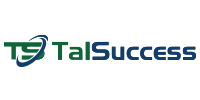Research from the International Coach Federation (ICF) suggests that companies that invest in coaching have an average return on investment (ROI) of seven times the initial investment.
Specifically, the research found that when managers change as a result of coaching, direct reports change, too:
· 90% of employees report developing new skills as a result of their manager being coached.
· 51 % of respondents shared that their manager has helped encourage them to learn continuously (for example, by encouraging a growth mindset).
· 67 % of respondents agreed they’re more likely to seek out opportunities to develop new skills.
But one of the biggest benefits—and one that will almost certainly ensure leadership buy-in—is the return on investment organisations reap from coaching. In today’s context coaching isn’t just a mere employee perk or motivational boost, it is an indispensable strategic imperative, driving measurable and impactful financial returns. The compelling 51 % revenue uptick reported by organizations fortified with robust coaching cultures serves as irrefutable evidence.”
We, @Quint Consulting Services, are seeing a change from team training to personal coaching. The effect of personal coaching is much more impactful and the learning is more practical and doable.
Coaching – combined with Mentoring is a deadly combination and has tremendous impact on an organisation’s performance and success.
We need to empower small and medium enterprises with the resources, knowledge, and confidence to deliver coaching and mentoring (both internally and externally). The idea is to find and certify internal coaches and mentors, so that the organization can work with teams at a more holistic and deep level, impacting real and tangible improvements
The process
Before you start the coaching process, one needs to understand the coachee’s behavioural traits. There are a lot of global psychometric assessment tools available like The Omnia Group, Inc. , TalentSmart® , Harrison etc. which can help you understand the current behavioural insights of the person.
Some of the key insights that these tools cover includes:
– ASSERTIVENESS / STRONG PERSONALITY / OVERBEARING
– RISK TAKING ABILITY
– RESILIENCE
– RELATIONSHIP BUILDING
– EMOTIONAL ALIGNMENT
– ANALYTICAL ABILITY
– MULTITASKING / VARIETY
– IMPACT OF CHANGES
– METHODICAL
– SPEED & AGILITY
– ADAPTABILITY
– DECISION MAKING ABILITY
– ABILITY TO DELEGATE
– COMPLIANT – FOLLOW LAID OUR PROCESSES / PROCEDURES
– ENERGY – PRODUCTIVITY
– PERSPECTIVE – MATURITY OF JUDGEMENT
– INTENSITY – STRENGTH OF BEHAVIOUR
Once you have the above key traits identified in the person, it becomes easier to understand and connect with the person to be able to coach and mentor in an effective way.
ROI Evaluation
Only 18 % of projects are analysed at the level of ROI as depicted in the graph below:

Why ROI is difficult to do
It has been observed that the a majority of organisations, do not undertake ROI studies and some of the reasons are mentioned below:

Although the trend is seen of moving from training to personal coaching, however the impact analysis or ROI of coaching is time consuming and difficult to ascertain.
Only a few forward looking organisations have moved over to majority coaching style of learning, most organisations are still focused on the classical training / learning methodologies. It will take time to move to the full coaching style due to the complexities of time and cost involved.
In my next article, we will explore further in the realm of coaching and mentoring.




seikxj
mnkkkp
nmfnh9
uxghyj
**mitolyn**
Mitolyn is a carefully developed, plant-based formula created to help support metabolic efficiency and encourage healthy, lasting weight management.
ltpytz
As soon as I found this site I went on reddit to share some of the love with them.
**neurosharp official**
Neuro Sharp is an advanced cognitive support formula designed to help you stay mentally sharp, focused, and confident throughout your day.
Thinking about trying tx88game. Is it any different from the others? User interface good? Looking for something fresh hopefully. More information tx88game.
Hey, 218phspinlogin is my go-to for a quick spin after work. Site’s smooth and the games are fun. Check it out: 218phspinlogin
55winzz is a solid choice if you’re looking for a new spot to game. Their bonuses are decent and the interface is pretty user-friendly. My recommendation: 55winzz